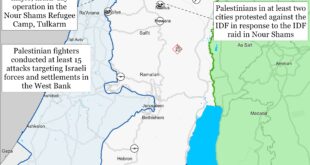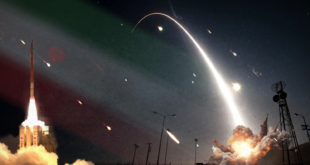 TEHRAN (FNA) Iran reiterated decisiveness to resolve the nuclear issue by answering the remaining questions about its nuclear activities within one month, a crucial step which will complete the implementation of a work plan agreed between the IAEA Secretariat and Iran in August 2007.The pledge was made during talks between Iranian leaders with head of the International Atomic Energy Agency (IAEA), IAEA spokeswoman Melissa Fleming said in Vienna on Sunday.
TEHRAN (FNA) Iran reiterated decisiveness to resolve the nuclear issue by answering the remaining questions about its nuclear activities within one month, a crucial step which will complete the implementation of a work plan agreed between the IAEA Secretariat and Iran in August 2007.The pledge was made during talks between Iranian leaders with head of the International Atomic Energy Agency (IAEA), IAEA spokeswoman Melissa Fleming said in Vienna on Sunday.
She said that during ElBaradei’s meetings with Iranian senior officials, including supreme leader ayatollah Ali Khamenei and President Mahmoud Ahmadinejad, the two sides discussed the “ways and means to accelerate implementation of safeguards in Iran as well as additional confidence building measures.”
She pointed out that an agreement was reached on the implementation of all the remaining vague issues specified in the work plan, and according to the agreed schedule, implementation of the work plan should be completed in the next four weeks.
The two sides also discussed the importance of the implementation of the Additional Protocol and other confidence building measures called for by the United Nations Security Council, she added, and Iran also provided information on its research and development activities on a new generation of centrifuges.
The development of centrifuges is a priority for the agency as it tries to establish how advanced Iran is in developing the technology.
Iran’s determination to answer questions about its nuclear program is primarily aimed to settle all issues in time for ElBaradei’s next Iran report to a meeting of the IAEA’s 35-nation board in early March.
“Agreement was reached on the timeline for implementation of all remaining verification issues specified in the work plan. According to the agreed schedule, implementation … should be completed in the next four weeks,” an IAEA statement said.
Mohammed Saeedi, deputy head of Iran’s atomic energy agency, said the new deadline was agreed upon at Iranian initiative and would show the world that Tehran’s nuclear goals are peaceful.
He said, “Iran has nothing to hide and therefore has no fear to answer remaining questions … to pave the ground for [the IAEA] to give a transparent report about Iran’s program.”
ElBaradei met Iranian leaders over two days last week to accelerate cooperation to wrap up a long-running IAEA investigation into Iran’s current program, which, according to IAEA and US intelligence reports, has so far contained no diversions from peaceful drives.
Iran has always stressed it wants to refine uranium for electricity.
After years of diplomatic friction under the US-led west pressure, the IAEA eventually agreed last August to pick up a logical course and try to resolve problems between the two sides within a “work plan”.
The US-led West has demanded Tehran to give up its NPT right of enrichment or face a third UN resolution and financial sanctions.
According to the NPT, Iran is as a signatory entitled to pursue civilian nuclear technology, including uranium enrichment.
Tehran has so far rejected this demand.
Iran is under two sets of UN Security Council sanctions for its refusal to freeze uranium enrichment even after the peaceful nature of its nuclear programs and activities was proved.
Washington is pushing for additional UN penalties despite a recent report by 16 US intelligence bodies that endorsed the civilian nature of Iran’s programs. Following the US National Intelligence Estimate (NIE) and a similar report by the IAEA head in November which praised Iran’s truthfulness about key aspects of its past nuclear activities, Russia and China increased resistance to any further punitive measures by the Security Council.
Tehran says it never worked on atomic weapons and wants to enrich uranium only to produce fuel for reactors that would generate electricity, a claim substantiated by the NIE and IAEA report.
Bush’s attempt to rally international pressure against Iran’s nuclear program has been complicated by the US intelligence.
Not only many Iranian officials, including President Mahmoud Ahmadinejad, but also many other world nations have called the UN Security Council pressure unjustified, especially in the wake of recent IAEA reports saying Iran had increased cooperation with the agency
 Eurasia Press & News
Eurasia Press & News



